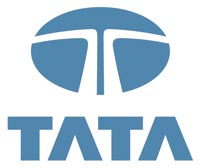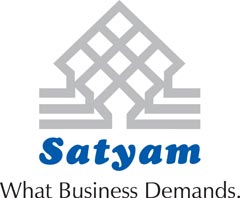INFOTECH INDIA | Tech Briefs:
Yahoo: Hiring and Firing | WIPRO: BPO to Hire 1,200 | TATA Telecom: 50,000 Join WiMax | SATYAM: $2.2B Revenue | INFOSYS: Captive Operations | TCS: Staff Relocation | BPO Revenues | Benefits Administration | Hanuman on PlayStation
Yahoo: Hiring and Firing
 Global search engine company Yahoo!, which recently announced a five percent layoff globally, is learnt to have asked around 60 employees from its Bangalore-based R&D centre to quit the company. Global search engine company Yahoo!, which recently announced a five percent layoff globally, is learnt to have asked around 60 employees from its Bangalore-based R&D centre to quit the company.
The California-based company is also planning to hire 130 professionals in India in areas like product engineering.
A company spokesperson, however, declined to comment. Sources said the recent announcement of the Yahoo! global layoff will impact less than 4 percent of Yahoo! India workforce, which at present is 1,500.
A significant number of the employees are being laid off on performance grounds, and some of them on account of reorganization, leading to them becoming functionless. This move will allow the company to focus on strategic priorities and provide flexibility for targeted hiring in key business areas, according to the company.
Yahoo! will continue to hire in business-critical areas, in India. The company currently has over 130 openings, sources added.
This is the second lay-off Yahoo! India will be undertaking following global announcements. In December 2008, the company had served notices to three percent of its India workforce due to the ongoing global economic slowdown.
|TOP|
WIPRO: BPO to Hire 1,200
 Wipro BPO, an arm of Wipro Technologies, will hire around 1,200 people in six months for its Hyderabad facility. While more than half of the recruits will be from Andhra Pradesh, the remaining will be hired from other states. The Hyderabad facility currently has over 3,000 employees. Wipro BPO, an arm of Wipro Technologies, will hire around 1,200 people in six months for its Hyderabad facility. While more than half of the recruits will be from Andhra Pradesh, the remaining will be hired from other states. The Hyderabad facility currently has over 3,000 employees.
The company will spend 40 percent of the employees’ salaries on training staff to suit customer requirements. “While there has been an impact of the global meltdown, the BPO business will continue to grow as it helps customers cut operating costs by providing cost-effective solutions,” said Wipro BPO senior vice-president and head Ashutosh Vaidya.
The Indian BP0 industry is expected to grow five-fold and provide direct employment to about two million people, according to a Nasscom study.
Wipro BPO has over 22,000 employees and contributes 7 percent of Wipro’s overall revenues.
“There is a thrust on recruitment in tier II and tier III locations. Talented candidates, who have moved up the ladder in a short span of time, can later opt for lateral shifts into other Wipro divisions. We have a sizeable amount of such shifts from IT services to BPO,” said Vaidya. The company will conduct recruitment drives across major cities and towns soon.
Wipro will also expand its global outreach by setting up a new centre in Europe this year. It already has a presence in Poland and Romania, besides operating in the U.S., Mexico, Brazil, China, Philippines and Australia.
|TOP|
TATA Telecom: 50,000 Join WiMax
 Much before the auction of spectrum for broadband wireless access, Tata Communications has roped in 50,000 subscribers for its broadband services using WiMax technology. Much before the auction of spectrum for broadband wireless access, Tata Communications has roped in 50,000 subscribers for its broadband services using WiMax technology.
Tata Communications Internet Services, a wholly-owned subsidiary of TCL, is investing substantially for its WiMax rollout service to ensure that it gets a head start in the acquisition of subscribers.
The company, with a WiMax outlay of $500 million for three years, has put in place around 1,400 base stations across 140 cities. This makes it the largest WiMax network in the world, according to TCISL COO Prateek Pashine.
“We are offering enterprise and broadband connectivity services. The Tatas will continue to invest in WiMax and will move into top gear after the spectrum auction,” Pashine added.
The company is targeting 200,000 subscribers by March 2010 for which it will enter into 20 new cities next year.
“Right now, we are in the process of filling the capacities created,” he said.
TCISL has procured its WiMax equipment from Telsima Corp, a company recently bought over by Harris Stratex Networks. It is sourcing customer premise equipment from Taiwan-based networking and communications equipment firm Universal Scientific Industrial. Pashine said while the industry's revenue per user per month was around Rs 300-400, TCISL was clocking a four-digit annual revenue per user. “It is in the range of Rs 1,000-1,100,” he said.
TCL, earlier known as VSNL, had received WiMax spectrum in the 3.3 Ghz band under its internet service provider license. Bharti Airtel, Aircel, Sify and Reliance Communications are some of the other companies that own spectrum in this band.
|TOP|
SATYAM: $2.2B Revenue
 Satyam Computer Services and its new owner Tech Mahindra are set to have combined revenues in the range of around $2.2 billion. While an immediate merger is ruled out, the two companies may be integrated two or three years down the line to have one large Tech Mahindra, a top Tech Mahindra official told employees at the “Tech Mahindra All Hands Meet Conference” recently. Satyam Computer Services and its new owner Tech Mahindra are set to have combined revenues in the range of around $2.2 billion. While an immediate merger is ruled out, the two companies may be integrated two or three years down the line to have one large Tech Mahindra, a top Tech Mahindra official told employees at the “Tech Mahindra All Hands Meet Conference” recently.
According to him, the employee strength at Satyam is around 45,000. “The exact tally at this point is not known but it would be around 40,000-42,000 employees, including its subsidiary, they have a few subsidiaries with that and it will be a little more,” he said.
The revenue and manpower projections assume significance, given that clients and employees exited after disgraced founder of Satyam B. Ramalinga Raju confessed to fudging the firm’s books by inflating revenue and profits. The real picture on the financial position will be known when Satyam’s accounts are restated. Satyam’s revenue, which was around $1.8 billion, is believed to have dropped to $1.2 billion after the scam due to significant client attrition.
With Tech Mahindra’s revenue at around $1 billion, the combined revenue would be around $2.2 billion going forward. “As always, we will be the number one in telecom. But with the acquisition of Satyam, we will also be number one in a large number of other areas, including business intelligence and enterprise solutions. Obviously, this will de-risk our model and this will give us a strong suit in consulting and enterprise business solutions. Most importantly, it diversifies not only our verticals, but it diversifies our currency,” the official said.
He, however, made it clear that he would be oversimplifying if he said that all was well with Satyam. “There are legal cases, too, which we have to look at, there is restatement of accounts which we have to look at, there is an overhang resulting from the fraudulent activities of the earlier promoter which includes everyone from CBI to FERA violations. “We would have to deal with government agencies and provide them with all the information. This does not impact on us or on our own management, but it is without doubt a distraction.”
|TOP|
INFOSYS: Captive Operations
 Infosys BPO, the back-office arm of India’s second-biggest software exporter Infosys, plans to acquire captive operations of customers as the company seeks to grow its share of the $80-billion global BPO market. Infosys BPO, the back-office arm of India’s second-biggest software exporter Infosys, plans to acquire captive operations of customers as the company seeks to grow its share of the $80-billion global BPO market.
Almost two years ago, Infosys BPO acquired back office operations of Philips, which assured around $250 million in revenues over the next few years. The acquisition helped Infosys gain entry into Poland and other European countries.
“We are open to similar takeovers if the right deal comes through,” Infosys BPO CEO Amitabh Chaudhry said. “We are not looking at opening any new centers across the globe, but if such a deal comes along that requires them to have a facility, then we would go ahead.”
Infosys BPO entered into a seven-year contract with Royal Philips Electronics of the Netherlands to provide finance and accounting services and the processing of purchasing orders in a deal valued at $250 million. The Philips centers are turning profitable, Chaudhry added.
|TOP|
TCS: Staff Relocation
 As part of cost-cutting measures, India's largest outsourcing firm Tata Consultancy Services said that it will relocate staff abroad into India. As part of cost-cutting measures, India's largest outsourcing firm Tata Consultancy Services said that it will relocate staff abroad into India.
“The company follows an onsite-offshore model. We will focus to do more work in India because it helps in saving cost and efficiency,” TCS Chief Operating Officer N Chandrasekaran told the media.
However, the company would continue to do work onshore and relocation did not mean that it was winding up its operations abroad. The company, which tried out its relocation in January-March this year, gained significantly in the last quarter of 2008-09.
In Q4, the company brought back its U.S. staff to India, resulting in savings of Rs 1.2 billion. The company did not give any figures on how many staff members were brought back. The relocation of staff could be in the thousands, he said.
At the same time, the company would be hiring more people numbering 24,855 in India. It would hire 250 freshers in the U.S. and a few in China, Chandrasekaran said.
But there would be no lateral hiring and there is a freeze on pay rises to its staff. He made it clear that TCS would not lay-off people as a result of relocation. “There would be no lay-offs,” he said.
Bringing back the staff to India would not be restricted only to the U.S. market, but across the world. “We have thousands of staff working in the U.S., U.K., and Europe,” he said.
The company had decided not to hire Satyam staff after the scam broke out, but now it is open to it. “When we hire laterals, whoever applies, we will look at them,” Chandrasekaran said.
|TOP|
BPO Revenues
The Indian IT-BPO industry is likely to touch revenues of $225 billion by 2020, of which exports will account for about $175 billion, according to a new report. The industry also has the potential to generate an additional $150 billion in revenues, provided it takes some measures to transform the business environment, infrastructure, talent development and innovativeness.
The report, “Perspective 2020: Transform Business, Transform India,” by industry association Nasscom and McKinsey, points to a few threats to India’s competitiveness, including a shortage of employable talent, inadequate infrastructure development and growing competition from emerging outsourcing destinations such as China and the Philippines.
The projection of $225 billion in revenues is based on a few assumptions, McKinsey partner Ranjit Tilankar said. These include some basic academic reforms such as collaboration with industry on curriculum, increase in employability of graduates from the current 10-15 percent, at least a 5.5 percent GDP growth and no impact of protectionism. “Protectionism could put about $50 billion of the projected revenue at risk,” Tilankar said.
Growth would largely come from untapped areas such as healthcare, public sector, media and utilities, new customer segments such as small and medium businesses and markets such as BRIC countries — an acronym for Brazil, Russia, India and China — and Germany. The industry would also employ about 12 million people directly by 2020, against 2.3 million now.
|TOP|
Benefits Administration
“We provide end-to-end benefits administration services. Our domain expertise on multiple proprietary and commercial platforms come as a value addition for clients. We want to play a bigger role in the area,” Patni BPO head Sanjiv Kapur told PTI.
Benefits administration involves a complex set of administrative activities for retirement and health benefits paid by employers to its employees. These activities are often managed by a third party provider called benefits administrators.
Patni BPO generates a significant part of its revenue from BAO servicing clients across North America, Australia, New Zealand, U.K and Ireland According to Nelson Hall, a BPO analyst firm, the global outsourced benefits administration market would almost double over the next five years to reach to $22 billion.
|TOP|
Hanuman on PlayStation
Sony Computer Entertainment Europe (SCEE) recently published ‘Hanuman – Boy Warrior,’ the first game ever to be completely developed by an Indian game development studio for Sony’s PS2 gaming console platform featuring the Hindu mythology’s super hero, Hanuman. The game, created by Hyderabad-based Aurona Technologies, becomes the first console game to be playable in English and Hindi.
“The launch of this game has marked a significant milestone in the Indian game development industry,” said Atindriya Bose, country manager (PlayStation), SCEE. With the launch of this game, priced at Rs 499, Bose is hopeful of achieving two things — increasing the sale of PS2 consoles in India and expand the market beyond metros to tier-II and tier-III cities.
In India, PS2 cost Rs 6,490 and games for PS2 are priced between Rs 400 to Rs 1,000. According to Bose, since its launch in India, close to 4.5 lakh PS2 consoles have been sold.
An updated version of the PS2, the PS3 costs Rs 25,000 and competes with Microsoft’s Xbox 360 and Nintendo’s Wii, and have so far sold about 40,000 units in India.
Before Diwali this year, SCEE will release another set of Indian games that will feature traditional Indian sports such as Kho Kho, Kabaddi and Gulli Danda. Bollywood and cricket games should soon follow suit.
Aurona Technologies is a subsidiary of the Pyramid Saimira Group. According to Santosh Pillai, its chief executive officer, the cost of developing this game was close to Rs 2.5 crore.
Gamers have called it a good entry-level game for an age group between seven to fifteen years. But this could hardly excite those hardcore gamers who play games both on PS2 and PS3. the creator of Hanuman – Boy Warrior says the cost of developing this game was close to Rs 2.5 crore.
|TOP|
|